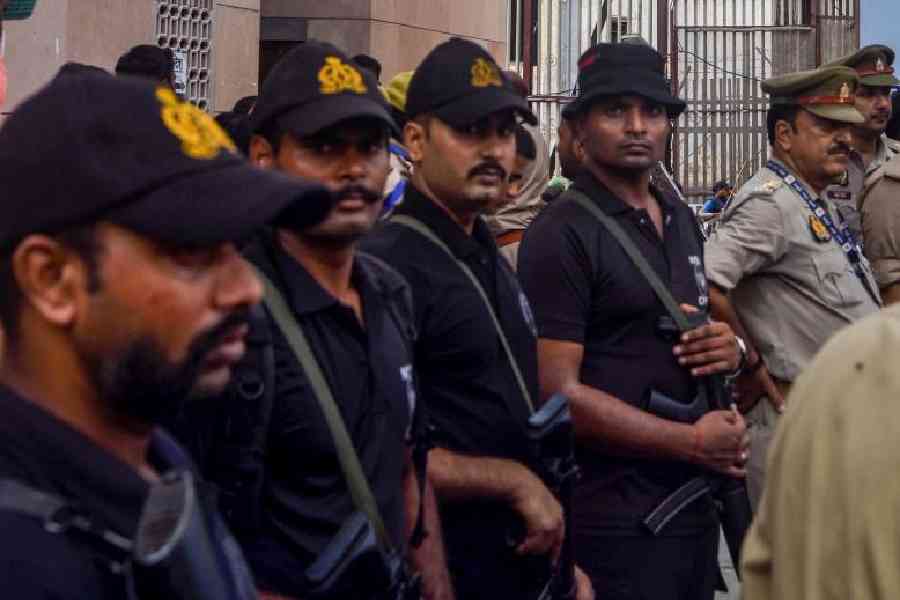The Archaeological Survey of India (ASI) stopped its ongoing survey of Gyanvapi mosque in Varanasi on Monday following a Supreme Court order for status quo till 5pm on Wednesday.
The survey had begun at 7am on the direction of the Varanasi district court and was to continue till 5pm every day for the next few days to find out the age of the structure and ascertain whether it was built after demolishing a portion of Kashi Vishwanath temple located beside it.
The Anjuman Intezamia Committee had moved the Supreme Court in the morning while arguing that the ASI survey would damage the “Islamic structure” and the apex court should rule against any such activity. The apex court directed the Varanasi administration to postpone the survey.
Vishnu Shankar Jain, the counsel for the Hindu petitioners, told reporters in Delhi: “The central government informed the Supreme Court that the ASI was doing its survey through the radar system on the basis of the Varanasi court’s order dated July 21. The Centre said that no part of the structure was damaged and there was no need to take cognisance of Intezamia’s plea. The Supreme Court asked the Muslim side to move Allahabad High Court against the district court’s order and also told the Varanasi district administration to stop all survey-related activities there till 5pm of July 26.”
Kaushal Raj Sharma, the divisional commissioner of Varanasi, told reporters: “The survey was started on the direction of the court and it was also stopped on the order of the court. Our job is to ensure that the court orders are being followed.”
He said the area of the mosque that was sealed on the order of the apex court two months ago was not included in the survey.
“The ASI conducted its survey in the other parts of the mosque,” the officer added.
An advocate-commissioner appointed by the district court had last year reported that there was a shivling on the premises of the mosque but the Intezamia had said it was only a fountain used by the Muslims to wash their hands before namaz.
The Hindu petitioners have been claiming that Mughal emperor Aurangzeb (1658-1707) had built the mosque after razing a part of the Kashi Vishwanath temple but the Muslims have rejected this theory.
Shahabuddin Barelvi, a cleric associated with the mosque, said: “The Varanasi district court had given its order on July 21. What was the need to start the survey so fast? The district administration had called a meeting of both the sides and the ASI members on Sunday evening without any prior information to us. The commissioner didn’t tell us that he wanted to start the survey on Monday morning. He discussed the law-and-order situation before beginning the survey in future. Today morning we came to know that the ASI and police had entered the mosque complex. Only then did our lawyers rush to the Supreme Court.”
Barelvi said the haste with which the meeting was called made them doubtful about the administration’s motive.
“We realised that the administration was all set to play some trick but we didn’t know that they would send the ASI members inside the Islamic shrine without sending a notice to Intezamia,” he added.











